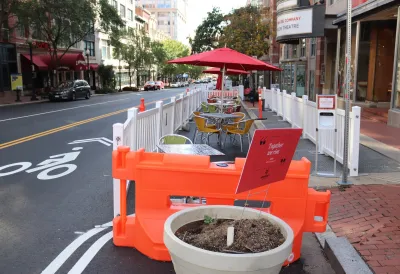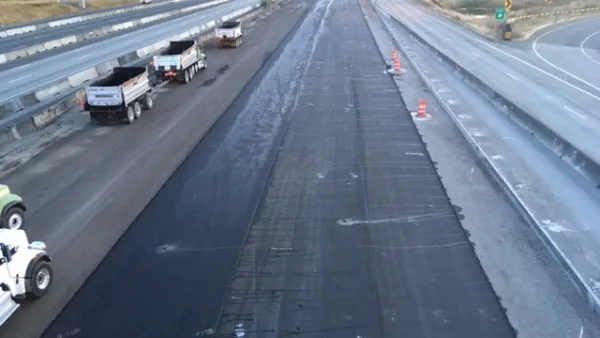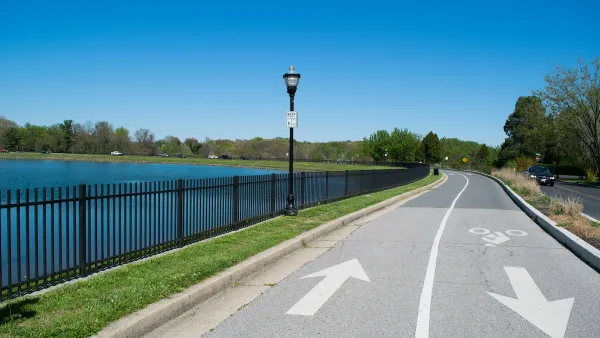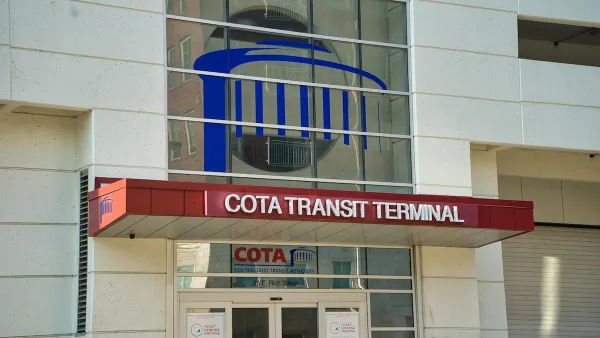Robust investment in the region's public transportation network can ensure a more equitable and sustainable path forward.

Writing in Greater Greater Washington, Caitlin Rogger questions the post-pandemic future of transit in the Washington, D.C. region. "Whether folks take transit, walk, roll, drive, take ride hailing services, or just don’t return physically to the same places they used to is closely tied with equity, livability, environmental quality and economic growth." With a growth in preference for single-occupancy vehicles and private transportation during the pandemic, is the region facing a "Carmageddon?"
If "those who can overwhelmingly choose to drive instead of taking sustainable modes" do so, Rogger argues, the resulting congestion "could choke the region’s economic recovery, and exacerbate health inequalities and environmental issues." To ensure equity and sustainability, she writes, the recovery cannot "be driven by those of us who can afford to drive." Rogger's suggestions for improving regional transit include using traffic downtime to build more bus and bike lanes, restoring transit services to pre-pandemic levels, repurposing parking, incentivizing bike usage through safer infrastructure and storage, implementing congestion pricing, and exploring avenues for lowering the cost of transit and reducing emissions.
The economic benefits of public transit are well documented. "A panoply of studies show that people using bikes, transit or walking to reach business destinations generate more business when they get there." Additionally, workers in low-wage jobs often depend on public transit. "To restore opportunities for lower-income workers that were taken away by the pandemic, it’s essential to ensure that bus services are able to meet riders’ needs with reliable, fast, convenient and affordable service," writees Rogger. If city leaders want to achieve their goal of a more equitable future, "that future requires vision and sustained investment in actions that will bring it about."
FULL STORY: Carmageddon? DC’s leaders can choose a different road.

Analysis: Cybertruck Fatality Rate Far Exceeds That of Ford Pinto
The Tesla Cybertruck was recalled seven times last year.

National Parks Layoffs Will Cause Communities to Lose Billions
Thousands of essential park workers were laid off this week, just before the busy spring break season.

Retro-silient?: America’s First “Eco-burb,” The Woodlands Turns 50
A master-planned community north of Houston offers lessons on green infrastructure and resilient design, but falls short of its founder’s lofty affordability and walkability goals.

Test News Post 1
This is a summary

Analysis: Cybertruck Fatality Rate Far Exceeds That of Ford Pinto
The Tesla Cybertruck was recalled seven times last year.

Test News Headline 46
Test for the image on the front page.
Urban Design for Planners 1: Software Tools
This six-course series explores essential urban design concepts using open source software and equips planners with the tools they need to participate fully in the urban design process.
Planning for Universal Design
Learn the tools for implementing Universal Design in planning regulations.
EMC Planning Group, Inc.
Planetizen
Planetizen
Mpact (formerly Rail~Volution)
Great Falls Development Authority, Inc.
HUDs Office of Policy Development and Research
NYU Wagner Graduate School of Public Service




























